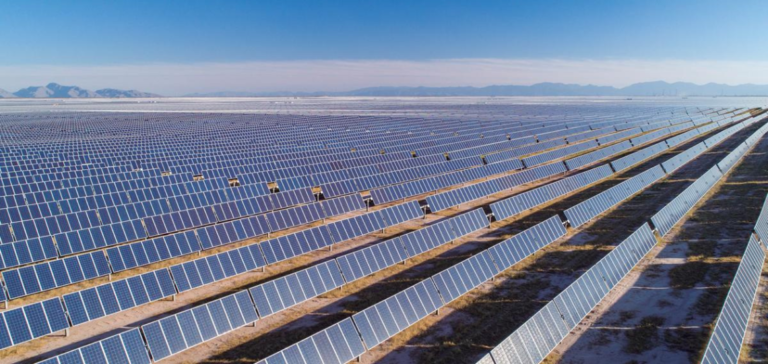Mexico recently revised its renewable energy capacity targets for the short and long term, according to the Program for the Development of the National Electrical System (PRODESEN) 2024-2038 published by the Secretariat of Energy (SENER). These revisions show a decline in solar photovoltaic (PV) capacity and a significant increase in wind power capacity, leading to a potential shift in the International Renewable Energy Certificate (I-REC) market.
Revised targets and impact on renewable capacities
In its May 31 report, SENER forecasts a 38.2% increase in net electricity consumption, from 358,670 GWh in 2024 to 495,781 GWh in 2038. Peak power demand would increase by 54.91%, reaching 79,627 MWh/h in 2038. To meet this demand, an additional 93,924 MW of capacity will be needed, including PV-solar, PV distributed generation (PV-DG), combined cycles with green hydrogen, wind power and battery energy storage systems (BESS). Valeria Amezcua, co-founder of VIA Climate Solutions, points out that the integration of renewable energies poses challenges related to variability, but smart grids and digitalization can offer solutions for gradually adapting the Mexican system to greater wind and solar participation.
Comparison with previous forecasts
For the short-term period 2024-2027, around 18,000 MW of renewable capacities are expected, including 5,501 MW of BESS, 5,025 MW of wind, 3,939 MW of PV-solar, 2,879 MW of PV-DG and 690 MW of hydropower. These figures contrast with the PRODESEN 2023-2037 forecasts, which predicted greater participation by solar PV (6,964 MW) and less capacity for wind and BESS (2,186 MW and 2,605 MW respectively). For the long-term period 2028-2038, renewable capacity additions should reach around 50,000 MW, with 22,662 MW of wind, 8,790 MW of PV-solar and 8,867 MW of BESS. These figures also differ from the previous year’s forecasts, when only 3,991 MW of wind power were expected, with solar PV dominating with around 17,000 MW.
Implications for the I-REC market
Statistics from the I-TRACK Foundation show that International Renewable Energy Certificates (I-RECs) in Mexico mainly come from wind power projects, with a large difference compared to the issuance of solar certificates. Despite these differences, I-REC wind and solar prices were at parity in June 2023, valued respectively at $1.42/MWh for the 2024 vintage and $1.298/MWh for the 2023 vintage. If PRODESEN’s forecasts materialize, the reduction in PV-solar capacity additions and the significant increase in wind power projects could break this parity in wind and solar I-REC prices. Fewer solar power plants would significantly reduce the supply of solar I-REC certificates, thereby increasing their price. On the other hand, the expansion of wind power capacity could lead to an increase in the supply of I-REC certificates for this technology, and a fall in their price. This revision of capacity targets could therefore have a significant impact on the price structure of I-RECs in Mexico, influencing investment strategies in renewable projects for years to come.






















